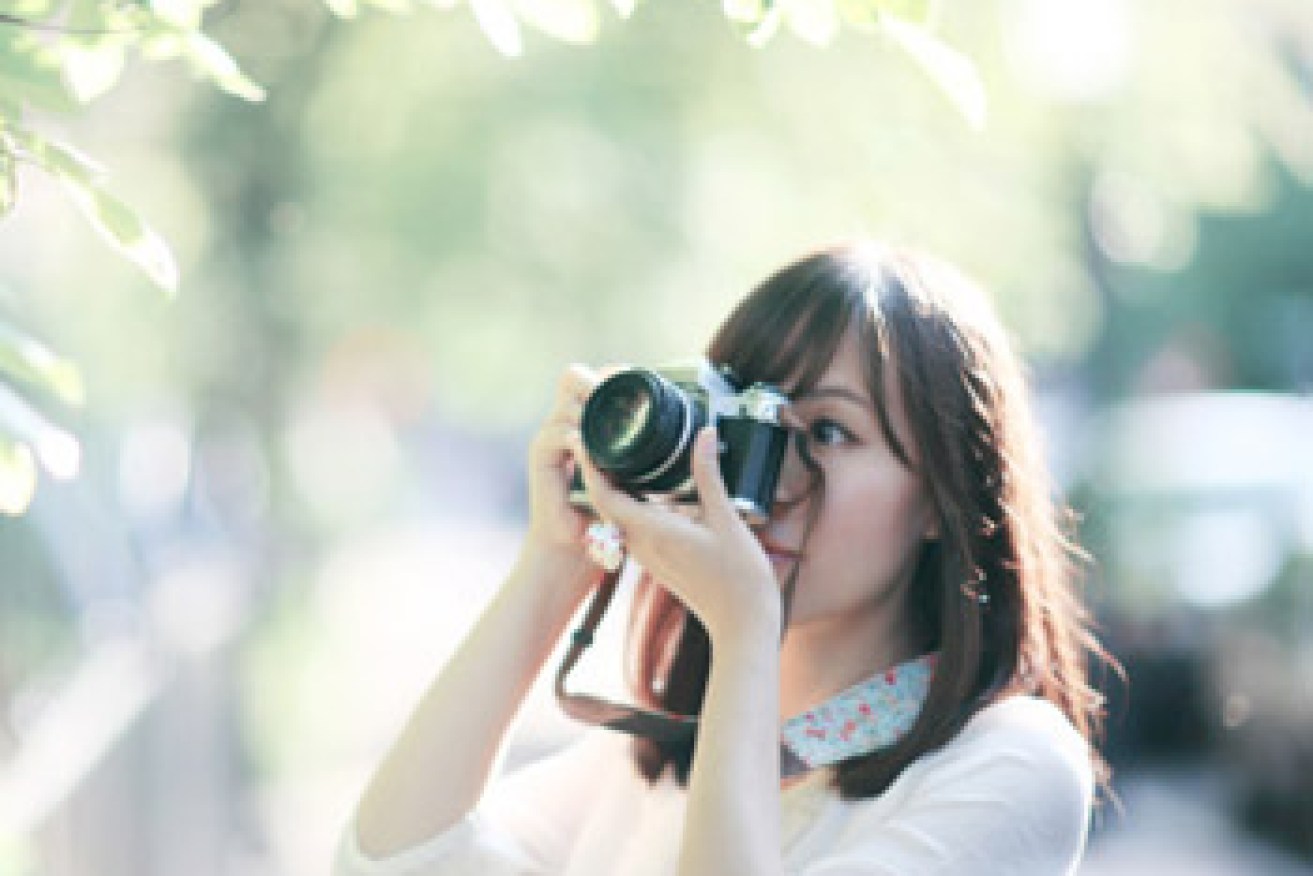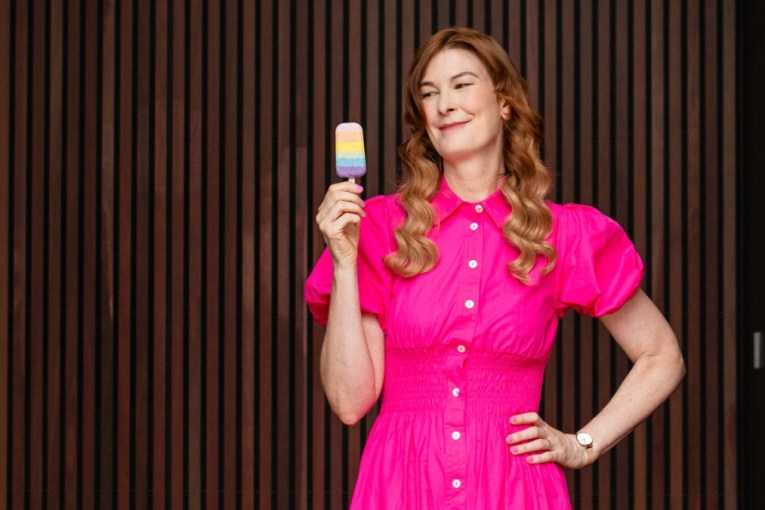‘Why I’ve stopped taking photographs’


Using an analog camera rather than a phone can help you be more 'intentional'. Photo: Getty/Supplied
While photographs used to take time and money to produce, these days it’s free and easy – and our digital albums are bursting as a result.
If you need proof we’ve reached a saturation point, look no further than the people who are going photograph-free (or close to it) after realising the effect being constantly snap happy was having on their wellbeing.
• Driving around Tasmania: the ultimate road trip
• Back to black: the tattoo trip sweeping the web
• ‘I have breast cancer … and young children’
“We’re losing our story-telling ability,” said Mara Morrison, co-owner of de-cluttering business The Filing Fairies.
Ms Morrison helps her clients to minimise the number of photographs they take, and to store them more effectively, with results that permeate far beyond simple organisation.

If you don’t photograph a meal, did you really eat it? Photo: Getty/Supplied
“Everyone is so glued to their phones, they’re missing out on the world,” she said.
Information overload
Ms Morrison said she has clients come to her who have taken 3000 photographs on a holiday and don’t know what to do with them.
Some are too scared to transfer images from memory sticks to a computer for fear of losing them, while some present archaic ‘floppy disks’ with unknown contents or murky prints of family members they don’t even recognise.
“Part of the process is helping people realise they need to be a bit more intentional with their photos,” said the mother of two, who has learned to delete nine out of every ten images she takes of her young children.
While the niche company helps people keep their digital data under control, some people are choosing to eschew photography altogether.
Going cold turkey
Spanish traveller Patrick Levai said giving up his snap habit was difficult, but these days he barely takes his phone out of his pocket.
“It was a tough habit to break, because you feel like you’re missing something,” he said.
“But now I feel so liberated, being able to enjoy things when they happen.”

Using an analog camera rather than a phone can help you be more ‘intentional’. Photo: Getty/Supplied
Mr Levai said he was upset when he realised he was noticing details in his photographs he hadn’t picked up at the time.
“I felt like I’d missed the chance of enjoying it right there, in real life,” he said.
According to research, you might not just be missing out on the moment, but the memory too.
A 2013 study from Fairfield University found people who mindlessly whipped their cameras out to document their every step were less likely to have an accurate memory of the occasion.
Snap only when it counts
Sydney businessman Daniel Battaglia said he stopped taking photos five years ago, but still allows himself to snap an image every now and then.
“I’ve had some great travels over the last few years, through Europe and the US, but I didn’t feel the need to take too many photos – I probably took five all up.”
Mr Battaglia, who used to work in finance but now runs a startup, said the photo ban was part of a general push to live life ‘mindfully’ and in the present.
“Nowadays I try to be more minimalist about most things, and I try not to think about the past or the future too much.”
He said he still uses social media and enjoys seeing photographs of friends’ milestones and updates, but he wasn’t sure if he’ll ever go back to uploading his own photos.









